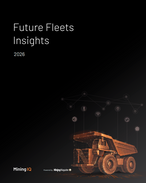This article is 13 years old. Images might not display.
The panel voted 2:1 to vacate the Cross State Air Pollution Rule, with Judge Brett Kavanaugh saying the EPA exceeded its authority through the CSAPR, known also as the Transport Rule.
“EPA's Transport Rule exceeds the agency's statutory authority in two independent respects," Kavanaugh said in court documentation obtained by ILN, adding that the rule, initially released last July, violated the Clean Air Act by requiring states to reduce emissions by more than their own contributions.
Many coal-supporting groups, as well as states, had filed appeals to the EPA rule, designed to limit and reduce sulfur dioxide and nitrogen oxide emissions in 28 states that were subsequently transported downwind to other states.
CSAPR was also introduced by the Obama administration to target fine particle pollution, or particulate matter smaller than 2.5 microns (PM 2.5).
The agency said the matter contributed to respiratory and cardiovascular problems.
"When EPA quantified states' good neighbor obligations, it did not allow the states the initial opportunity to implement the required reductions with respect to sources within their borders,” Kavanaugh said in the documentation.
“By doing so, EPA departed from its consistent prior approach to implementing the good neighbor provision and violated the act.”
Kavanaugh also noted the EPA’s moves had created a “Catch-22” situation that would make federal compliance very hard for the impacted states.
"EPA faults the states for not hitting that impossible-to-know target with their [state implementation plans] submissions," he said.
"In effect, EPA's view is that the only chance states have to hit the target is before EPA defines the target. By the time EPA makes the target clear, it's already too late for the states to comply."
Environmental groups were quick to react to the ruling and the Natural Resources Defense Council – very vocal in recent months regarding the hotly debated emissions issue between industry and the EPA – called the panel’s decision “a loss for all of us”
"This decision allows harmful power plant air pollution to continue to aggravate major health problems and foul up our air,” NRDC representative John Walker said.
"This rule would have prevented thousands of premature deaths and saved tens of billions of dollars a year in health costs but two judges blocked that from happening and forced EPA to further delay long overdue health safeguards for Americans."
The EPA initially estimated that pollution reductions would have cost about $2.4 billion a year and netted about $120-280 billion annually in large parts by the 13,000 premature deaths it said the rule would help avoid.
The figures were validated by a Harvard and Massachusetts Institute of Technology analysis, according to CNN.
One of the first industry groups to applaud the ruling was the United Mine Workers of America, calling it “welcome news” for the nation’s miners and coal mines.
“This was an instance of EPA going too far, too fast,” UMWA president Cecil Roberts said.
“The court very clearly said that EPA cannot exceed its statutory authority. The agency cannot create new law [and we] believe that other recent regulations promulgated and proposed by EPA also suffer from this flaw.”
Roberts said the UMWA shared the ultimate goal of cleaner air and a cleaner environment.
However, he said he felt there was a way to achieve those goals without destroying the industry so vital to the short and long-term economic and energy security of the US.
"Coal mining puts billions of dollars in the form of wages, benefits, taxes and vendor services into the economies of mostly rural, hard-pressed communities throughout the nation,” he said.
“This ruling provides a reprieve for those communities and it is our hope that any future action on the part of EPA will finally take into account the full impact of its rulemaking on all concerned."
As Kavanaugh said in the 60-page decision, the ruling was based on boundaries.
“It is not our job to set environmental policy,” he said.
“Our limited but important role is to independently ensure that the agency stays within the boundaries Congress has set. EPA did not do so here.”
























